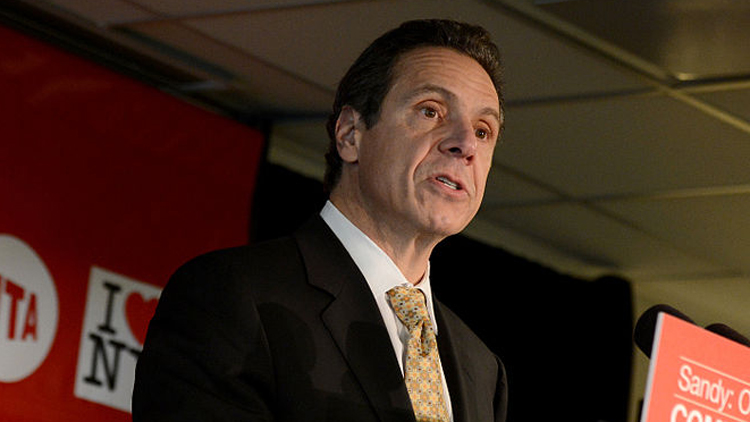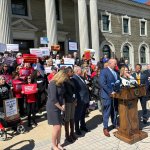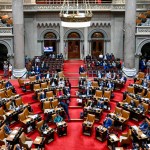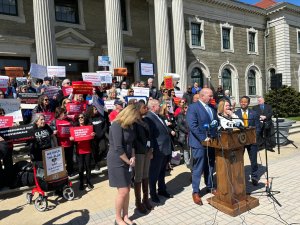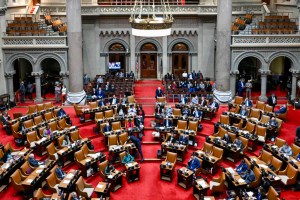New York State Gov. Andrew Cuomo came to Long Island on Thursday to sign a bill into law requiring small local governments to devise a plan to share resources with one another.
Under the law, county executives are mandated to hold public meetings with the leaders of local towns, villages, school districts and other special districts in their areas to see what efficiencies can be found. The goal is to decrease local government spending and, in effect, reduce local property taxes to ease the burden on homeowners.
“I don’t believe that there aren’t more efficiencies that can be found from government,” Cuomo told a crowd of local lawmakers and supporters at the Local 66 union hall in Melville. “You are all in the basic business of providing community service. Not everyone has to do everything.”
Under the law, the county legislatures must have a cost-savings plan to consider by Aug. 1. The meetings between local officials will be open to the public and televised, the governor said. Three such meetings must be held by Sept. 15, but if no plan is approved, the law mandates that the process be started over.
Besides Nassau and Suffolk counties, independently operated local governments include 13 towns, 97 villages, 127 school districts and hundreds more fire districts, library districts, garbage collection districts, erosion control districts and other agencies that together contribute to the region having among the highest property taxes in the nation.
Cuomo said he anticipates there will be resistance from local officials reluctant to share equipment, such as construction vehicles, or services, such as insurance. But he predicted that if they work together, the savings could be in the millions. If successful, he predicted it could “change the trajectory of Long Island” by increasing property values and stopping the Brain Drain—the trend of college graduates moving away because they can’t afford to live on LI.
“Local officials, get beyond yourself,” he said, speaking directly to local government leaders while making his case. “It’s not an attack on you and your autonomy and your management…We have to work together if we want to make Long Island the Long Island we want to make it.”
As a call to action, he cited a congressional bill that would end homeowner’s ability to write off their state and local property taxes, which the governor said would increase the taxes Long Islanders pay even more. He estimated it could increase taxes by $4,500 annually per family on LI.
“If we don’t do something about it, we’re going to have a real problem,” he said. “This issue is more critical than ever.”



